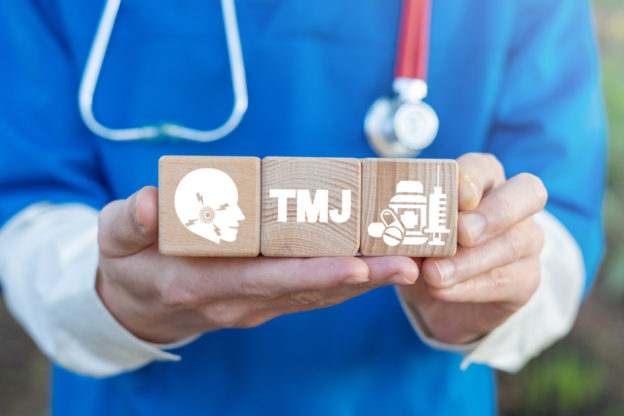If you suffer from pain and dysfunction in the jaw, you may have temporomandibular joint (TMJ) disorder. And though the condition can be temporary, TMJ treatment may become necessary if your symptoms persist.
At Richmond Oral and Maxillofacial Surgery, we’ve found that many patients with chronic jaw pain and stiffness in the temporomandibular joints aren’t sure where to turn for relief or what TMJ treatment involves.

Talk to an Oral and Maxillofacial Surgeon
To get on the path to pain relief and jaw functionality, your first step is to schedule a consultation with a local oral surgeon — and no, this doesn’t mean you’re going to need oral surgery.
Like other health care professionals, oral surgeons look at surgical procedures as the last course of action in TMJ treatment, only an option when other measures fail to alleviate symptoms. But unlike your family doctor and dentist, oral surgeons are experts in diagnosing and treating facial conditions. So a local oral and maxillofacial surgery practice is the best place to go for a confirmation of your suspected case of TMJ disorder.
Start with Simple TMJ Treatment Tricks
If your oral surgeon diagnoses you with TMJ disorder, you’ll leave the office armed with simple strategies that may help alleviate your pain and restore your jaw function. For some patients, making the following efforts can eliminate the need for further TMJ treatment:
- Taking smaller bites to keep from opening the mouth wide
- Refraining from eating chewy, crunchy and hard foods
- Choosing soft foods when jaw pain is at its worst
- Avoiding alcohol and beverages that contain caffeine
- Steering clear of smoking and not using other forms of tobacco
- Gently massaging and stretching the jaw and neck muscles
- Reducing stress and taking more time to rest and relax
Consider Conservative TMJ Treatment Therapies
The strategies listed above can help alleviate the symptoms of TMJ disorder, but many patients with the condition require additional treatment. Oral surgeons recommend several conservative therapies, including:
- Ice packs or warm packs applied to the face and temporomandibular joint area
- Ibuprofen, naproxen or other over-the-counter nonsteroidal anti-inflammatory drugs (NSAIDs)
- Mouthguards or stabilization splints, worn at night to prevent tooth grinding
- Trigger-point injections of anesthetic and/or pain medication into the jaw joint
- Transcutaneous electrical nerve stimulation (TENS) with a low-level current
- Prescription muscle relaxant medication to reduce jaw stiffness and encourage mobility
If none of these provides you with pain relief and improved jaw functionality, oral surgery could be the next step — but that’s not something you should worry about now. First, you need to schedule a TMJ consultation with an experienced local oral and maxillofacial surgeon.
For expert care and advice on TMJ disorder, patients in the greater east central Indiana area should rely on the professional team at Richmond Oral and Maxillofacial Surgery. Contact our office and make an appointment to discuss TMJ treatment today.



